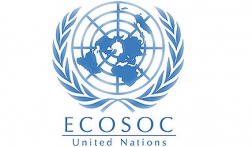Getting ECOSOC status allows NGOs to participate fully in the UN system. Without it, they are confined to the sidelines - unable to submit questions, attend UN sessions or hold side events in their own name.
CRIN has been deferred from attaining ECOSOC status seven times since we applied in 28 May 2010 by what we believe are tactics employed by some States to deny access to NGOs critical of governments and select their own jury at the UN.
This impression is shared by others. The International Service for Human Rights (ISHR) has been reporting on ECOSOC's work and its lack of transparency. The Human Rights House Foundation called ECOSOC the “21st century censorship bureau” in an article from May 2014.
States who are committee members are controlling the review process to defer applications, such as asking (often repetitive) questions that go beyond the scope of what NGOs are required to submit with their applications.
The process of getting ECOSOC status lacks transparency and clear accountability. This is why CRIN, together with other NGOs, decided to take action within our transparency campaign to call upon the ECOSOC Committee on NGOs to stop blocking access for legitimate human rights organisations to the ECOSOC status.
Action Taken
- Read the open letter to the ECOSOC Committee on NGOs, signed by a group of civil society organisations from around the world.
- Read more about CRIN's ECOSOC application, including all (repetitive) questions and answers by the Committee.
- Read an interview with CRIN director Veronica Yates from the ISHR in the course of reporting on transparency in the ECOSOC status process.
- CRIN filled out and submitted the questionnaire of the United Nations Special Rapporteur on freedoms of peaceful assembly and of association.
Updates
In an important step for improving NGO engagement with the UN, the Economic and Social Council (ECOSOC) have passed a resolution to webcast open sessions of the NGO Committee. The practice of the NGO Committee - that makes recommendations regarding NGO accreditation with the UN - has been much criticised, including for its lack of transparency. Civil society organisations will not bw able to follow consideration of their cases directly and webcasting will allow applicants to better understand the UN system, provide the UN with accurate information when applying for accreditation, and be encouraged to participate including in the implementation of Agenda 2030.
The resolution introducing these changes was proposed by Chile, on behalf of Mexico and Uruguay and adopted by ECOSOC without opposition. During the ECOSOC session, several States - including China, Pakistan, South Africa and Venezuela - noted that ECOSOC should not interfere in the work of the NGO Committee. However, these concerns ultimately held no sway. The resolution passed with 37 in favour and 16 abstentions. More information can be found here.



